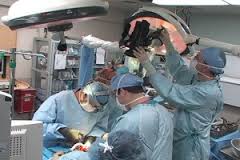An August article in The Washington Post boldly asserted “a movement is afoot” among a group of people whose loved ones were injured or died due to medical malpractice.  Supporters of the movement known as National Organization for Medical Malpractice Victims are seeking to require hospitals operating rooms to have video and audio recording mandatory during procedures. And hospitals wouldn’t necessarily be out large sums of money because in many cases the use of existing technology would be sufficient to record procedures.
Supporters of the movement known as National Organization for Medical Malpractice Victims are seeking to require hospitals operating rooms to have video and audio recording mandatory during procedures. And hospitals wouldn’t necessarily be out large sums of money because in many cases the use of existing technology would be sufficient to record procedures.
In many surgical error cases that come before Tennessee medical malpractice attorneys every year, it’s challenging to identify the exact kind of error that occurred. This is due to the lack of proper documentation, confusion during the procedure, or intentional cover-ups by medical professionals. For many patients, this means that they are unable to proceed with a medical malpractice lawsuit because the evidence cannot support a successful result.
According to the Journal Of Medical Safety, an estimated and alarming 400,000 people a year die in the United States of preventable medical errors, the third-leading cause of death after heart disease and cancer. That’s more than 1,000 people per day.
In the absence of any kind of audio or video recording of what transpired in the operating room, patients and families have to rely on the memories of those present in the OR, and whatever documentation was created immediately after the surgery. In many cases, these are insufficient to identify the kind of errors that occurred.
According to the Washington Post article, a Canadian surgeon has designed a black box video recorder that would allow recordings of surgeries, and would allow surgeons to review their work. Much the same way professional athletes review videos of their performance on the track and field in order to improve results. The surgeon believes that the same kind of logic could be used to allow surgeons to review their performance in the operating room, and fix errors when they see them.
The movement is already translating into legislation. In Wisconsin, a bill has been introduced in the state legislature that would require such recording devices in every operating room in hospitals in the state. The proposed legislation is known as the “Julie Ayer Rubenzer Law,” named for a Wisconsin woman who died after she was given excessive amounts of propofol during breast enhancement surgery.
The healthcare industry is obviously not too enthused with this new legislation and movement, but with 1,000 people dying per day due to surgical negligence, reform is way overdue. If you have been injured during a medical procedure you should seek the services of an experienced personal injury lawyer. Contact attorney Michael Pence for your consultation.


